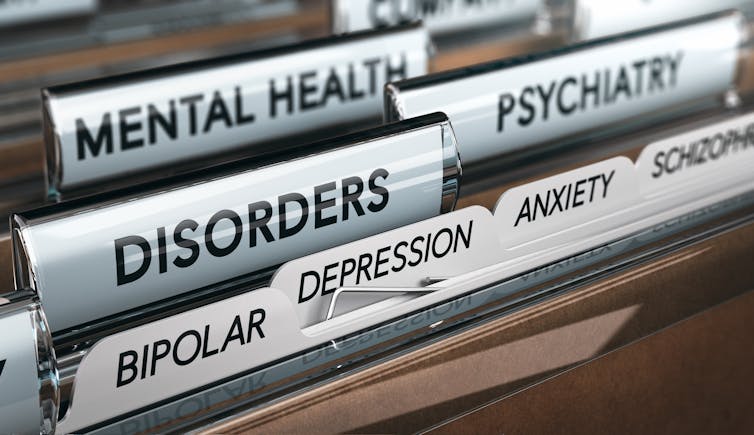
- By #StephenCarbone
#StephenCarbone works for Prevention United, a #mentalhealth promotion charity that focuses on the prevention of #mentaldisorders.
Despite the incremental easing of Victoria’s restrictions, it’s clear the journey towards #COVID-normal is far slower than many people had hoped.
Australians – particularly Victorians – have shown remarkable resilience, but many are suffering emotionally.
#JamesDonaldson notes:
Welcome to the “next chapter” of my life… being a voice and an advocate for #mentalhealthawarenessandsuicideprevention, especially pertaining to our younger generation of students and student-athletes.
Getting men to speak up and reach out for help and assistance is one of my passions. Us men need to not suffer in silence or drown our sorrows in alcohol, hang out at bars and strip joints, or get involved with drug use.
Having gone through a recent bout of #depression and #suicidalthoughts myself, I realize now, that I can make a huge difference in the lives of so many by sharing my story, and by sharing various resources I come across as I work in this space. #http://bit.ly/JamesMentalHealthArticle
The #mentalhealth impacts of #COVID-19
During the early days of the #pandemic, surveys showed a sharp increase in symptoms of #anxiety and #depression across Australia. These difficulties continued into mid-August. More than 40% of Australians aged 18 years and older feel high levels of #anxiety, and around one in six report depressive symptoms.
To target this, federal and state governments have increased telephone, online and face-to-face #mentalhealth supports. While this is vital, more needs to be done to prevent people suffering severe #mentalhealth problems in the first place.

Prevention is better than cure
There’s good evidence we can prevent many cases of #depression, #anxiety and substance abuse. But Australia doesn’t have a #mentalhealth prevention plan or policy, and government funding for prevention is just 1% of the total #mentalhealth budget.
The Fifth #NationalMentalHealthandSuicidePrevention Plan, the government’s key #mentalhealth blueprint, focuses on improving #mentalhealth-care services and #suicideprevention, but not on preventing the #mentalhealthconditions that are a major risk factor for #suicide.
What about illness prevention?
Last month the federal government released a consultation paper on its proposed #NationalPreventiveHealthStrategy, setting out what the strategy will aim to achieve and how it might be done.
The document’s exciting because it focuses on health promotion and illness prevention, acknowledging we can’t improve the health of the Australian community through health-care measures alone.
But unfortunately, the proposed strategy’s fundamentally focused on physical health issues. In its 20 pages, the consultation paper only mentions #mentalhealth three times.

The same principles outlined in the strategy to prevent conditions such as diabetes also apply to preventing #mentalhealthconditions such as #depression. To prevent either, we need to minimize risk factors and increase protective factors linked to the condition, before it occurs. But some adaptation would be needed for the plan to address both physical and #mentalhealth.
What prevention measures should be added?
A focus on physical activity, healthy eating, and non-smoking will help to promote good #mentalhealth as well as physical health.

To prevent #mentalhealthissues we should focus on building people’s health literacy and self-care skills through public information campaigns and online learning programs. Supportive social environments can be encouraged by parenting programs, and school and workplace #mentalhealth promotion initiatives.
Local communities could also be mobilized to take positive action on local issues that contribute to poor health and #mentalhealth through place-based strategies. Place-based strategies aim to tackle issues existing at a neighborhood level, such as #socialisolation and poor housing.
Services could be reoriented towards prevention. Primary care professionals might provide advice on self-care and use social prescribing to address #stress and enhance social supports. Social prescribing involves medical professionals linking patients to non-medical supports. For example, they may provide an “exercise prescription” or “art prescription”.
Finally, appropriate public policy solutions, such as JobSeeker and JobKeeper, that tackle the social and economic determinants of ill-health are needed.
Social factors matter too
Research also points to a strong link between #mentalhealthconditions and experience of childhood adversity, family violence, #loneliness, racism, homophobia and transphobia. Workplace stressors, #financial #stress, unemployment and homelessness are also risk factors.
Many of these issues are on the increase because of #COVID-19, so to safeguard #mentalhealth we need to tackle them and their impact. This will require the use of evidence-based preventive programs outlined above – many of which already exist but are not being implemented well or to sufficient scale. It will also require public policies to soften the economic blow and ease financial #stress.
Targeting these issues will not only help to prevent #mentalhealthconditions, but physical health conditions as well.
While better access to #mentalhealth-care services is important, it can’t solve all the #mentalhealthchallenges posed by #COVID-19. We also need to strengthen the factors that buffer people against #stress, and tackle the underlying factors that contribute to poor #mentalhealth.
Whether we create a National Preventive #MentalHealth Plan, or embed #mentalhealth in the current National Preventive Health Strategy, one thing’s for sure: continuing to ignore the prevention of #mentalhealthconditions is not an option in a #COVID-19 world.



